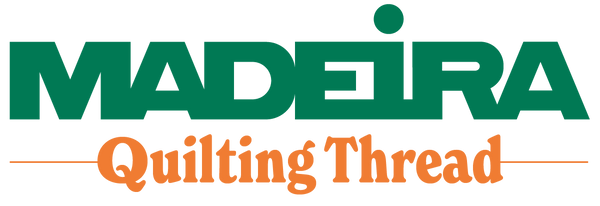Have you ever looked at a quilt and thought, “There’s no way that was sewn by hand!” Maybe it had crisp corners, intricate angles, or even a picture-perfect design. Chances are, that quilt was made using a technique called Foundation Paper Piecing, or FPP.
What Is Foundation Paper Piecing?
FPP is a quilting method where you sew fabric directly onto a printed paper pattern. Instead of cutting your fabric into exact shapes first, you build your block by stitching pieces of fabric—one at a time—in a numbered order, right onto the paper. The lines on the template guide your stitching.
The payoff? Blocks that are incredibly sharp, precise, and consistent—every single time.
How FPP Works
Think of Foundation Paper Piecing as flipping traditional quilting on its head. Here’s how it goes:
-
Print your template on regular printer paper (letter or A4 size).
-
Place your fabric on the back of the paper, following the numbers printed on the front.
-
Sew along the lines on the front side.
-
After each seam, press and trim your fabric.
-
Keep going until your block is complete.
-
Once done, tear away the paper.
FPP is ideal for detailed quilt blocks, geometric designs, and modern layouts that need clean, exact lines.
Why Quilters Love FPP
-
Precision Made Easy: Even beginners can achieve perfect points and clean angles.
-
Consistent Results: Using a printed pattern means every block turns out the same.
-
Tackle Complex Designs: From abstract art to portrait quilts, FPP makes it manageable.
What You’ll Need
To get started with FPP, here’s what you’ll want on hand:
-
Printed paper templates (regular printer paper or specialty foundation paper)
-
Fabric scraps or yardage, sorted by color or number
-
Sewing machine, Iron and pressing surface
-
Add-a-quarter ruler (not essential, but very handy)
-
Washable glue stick or pins for holding fabric pieces in place
Tips for First-Timers
-
Start Small: Choose a basic block to learn the technique before jumping into complex designs.
-
Use a Light Source: A lightbox or sunny window can help you line up fabric under the paper.
-
Shorten Your Stitch: This makes the paper easier to remove later.
-
Press Often: Iron between steps to keep seams crisp and accurate.
-
Trim As You Go: Consistent seam allowances will help everything line up cleanly in the end.
Common Questions About FPP
Is FPP beginner-friendly?
Yes! It might feel a little odd at first, but the process quickly becomes second nature. Think: stitch, flip, press—repeat.
Do I need special paper?
Nope. Regular printer paper works just fine. That said, some quilters prefer lightweight foundation paper, which tears away more easily.
What kinds of quilts can I make with FPP?
Pretty much anything! From minimalist modern designs to detailed portraits, FPP is versatile and adaptable to nearly every style.
Final Thoughts
Foundation Paper Piecing is an incredible tool for quilters who want to bring precision and artistry to their work. Whether you’re just beginning or looking to expand your quilting skills, FPP offers a new way to create beautiful, polished blocks with confidence.



Leave a comment